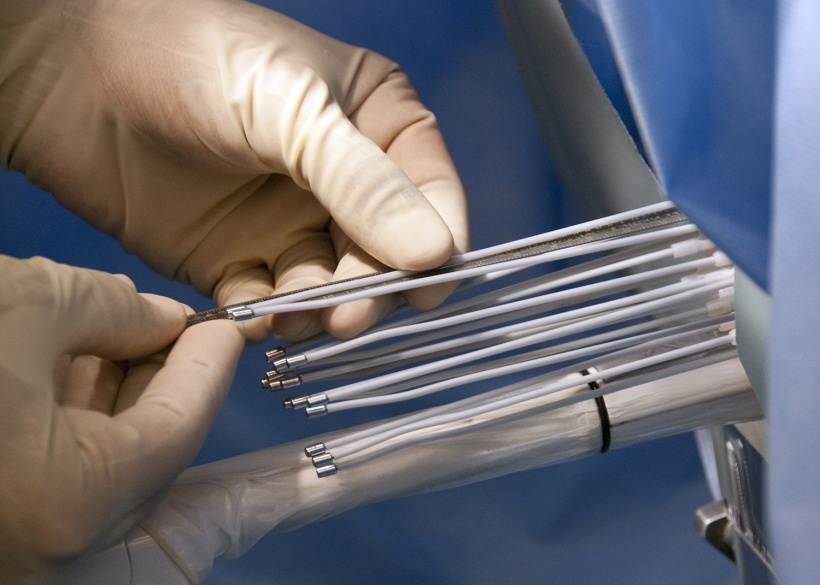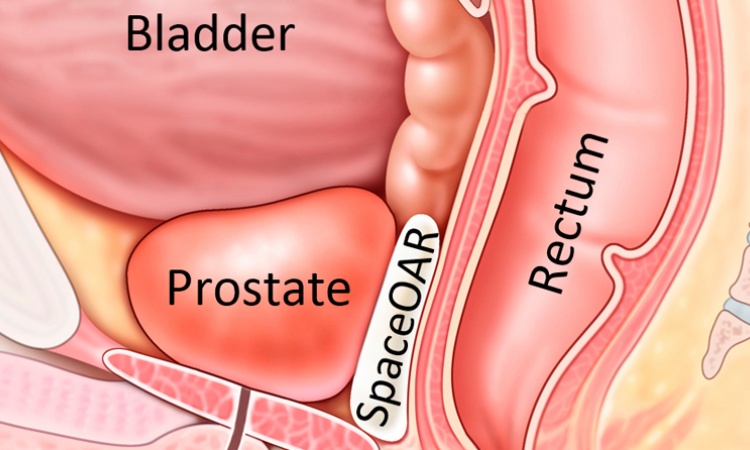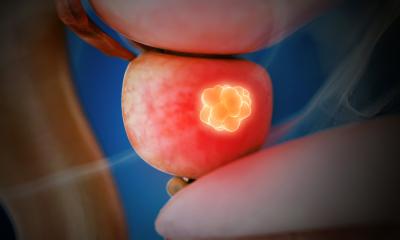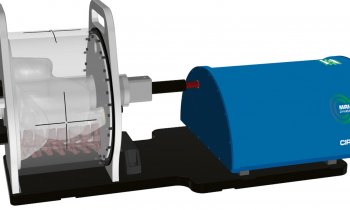News • External and brachytherapy
Prostate cancer: Combination of radiation therapies key to success
Prostate cancer is one of the most common cancers diagnosed nationally among men. The National Cancer Institute estimates 161,000 were diagnosed in 2017.
While there are many treatment options for men with prostate cancer, a recent national study published in the Journal of the American Medical Association compared the effectiveness of treatments for high-risk prostate cancer. Said Daniel Krauss, M.D., radiation oncologist and principal investigator at the Beaumont, Royal Oak research site, “Though retrospective, more than 1,800 very high-risk patients were relatively equally divided into treatment groups – primary surgery; external beam radiotherapy; and external beam with internal radiation (brachytherapy). Compared to other approaches, the combination of external beam and brachytherapy showed dramatic improvements in cancer mortality and metastatic disease rates – something radiation oncologists at Beaumont have suspected for some time.” Beaumont has long been a pioneer in treating prostate cancer using brachytherapy.

Researchers found treating patients with a combination of external beam with brachytherapy resulted in a decline in metastatic cancer rates from 25 to 8 percent. Metastatic cancer is cancer that has spread to a body site remote from where it started. Cancer mortality rates decreased from 12 percent in patients treated with primary surgery or external radiation alone, to 3 percent in patients treated with the combination of external radiation plus brachytherapy. Brachytherapy is a form of radiation therapy that involves placing a radioactive source within the patient’s body at the site of the cancer. The radioactive source used to destroy the cancer is delivered by devices. These devices are called implants.
Brachytherapy may be performed in combination with external beam radiation therapy to help destroy the main mass of tumor cells for certain types of cancer. Dr. Krauss is a leading expert in treating prostate cancer with high-dose-rate brachytherapy. Depending on the type of prostate cancer, some patients can be treated entirely with two, or sometimes as little as one, minimally invasive brachytherapy treatment. He continues his research to further refine the treatment duration and establish an optimal treatment dose.
Source: Beaumont Health
26.03.2018










